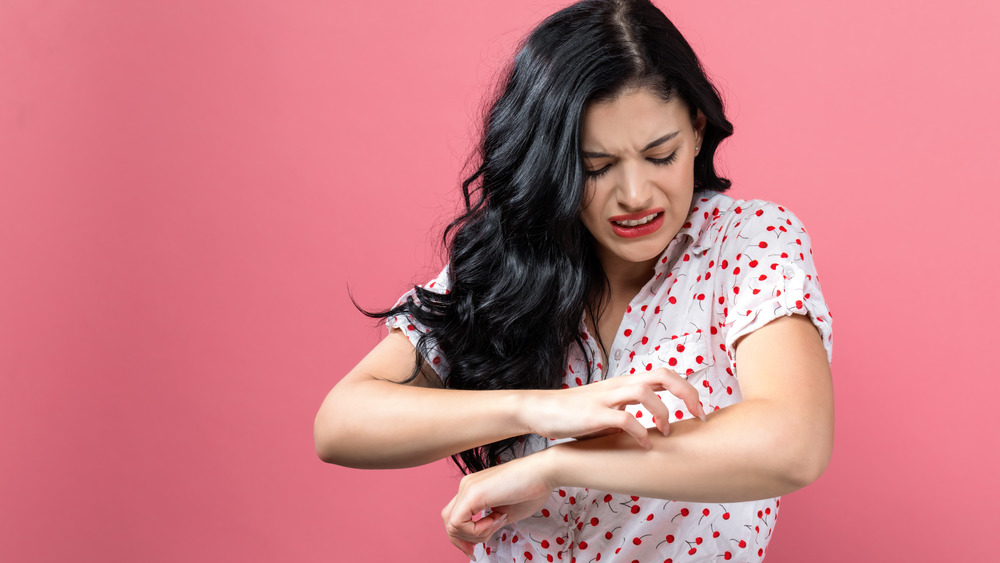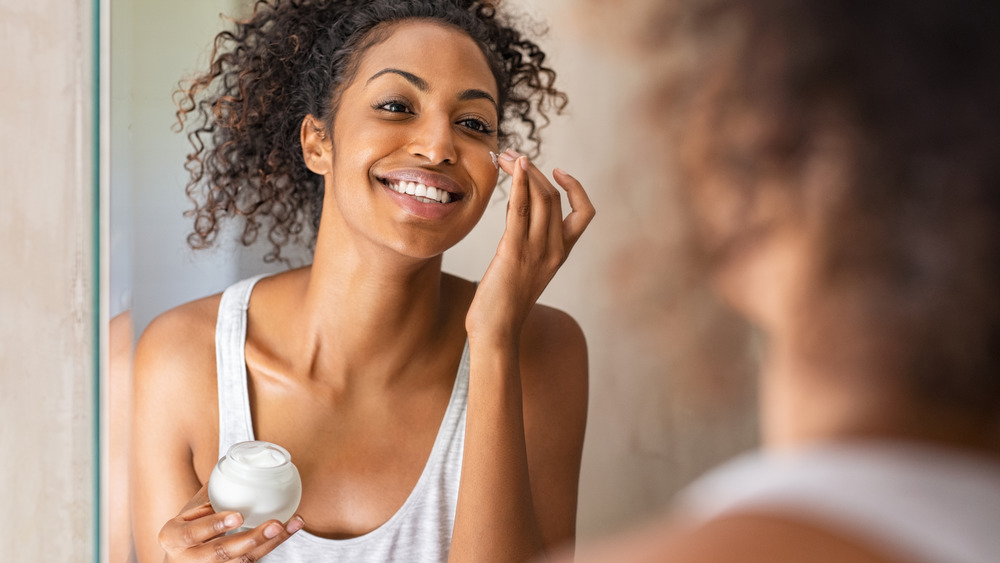The Truth About Eczema
Eczema is a group of seven different skin conditions that affect more than 31 million Americans and can come on at any age. The most common type of eczema is atopic dermatitis. Although the most well-known symptom of eczema is itchiness, it isn't contagious. Eczema is caused by genes and something in the environment that triggers the immune system to react by creating eczema symptoms (via the National Eczema Association). According to the American Academy of Allergy, Asthma & Immunology (AAAAI), about half of people who have eczema also have seasonal allergies, food allergies, and asthma.
Make an appointment with a dermatologist to get a diagnosis because eczema and psoriasis look similar and might be confused. A dermatologist can see the difference and give you a proper diagnosis so you can get the right treatment (via the American Academy of Dermatology).
Symptoms of eczema include intense itchiness, inflammation, dryness, cracked skin, roughness, patches of discoloration, scaly patches, bumps, oozing, leathery skin, and hives. The affected skin can become thicker. In some cases, the itching can be so intense that people with eczema will scratch until the area is raw and bleeding (via Mayo Clinic).
Treatments for Eczema
Figuring out your triggers and avoiding them can help reduce flare-ups, but remember that flare-ups don't happen immediately after a trigger. It can be a slow reaction with eczema.
Common eczema triggers are dry skin, stress, and irritants — clothing, soap, cleaners, metals, fragrances, smoke, dust mites, and some food. An allergist can help you identify possible allergic triggers. Keep your skin moisturized, avoid irritants and triggers, and manage stress to reduce flare-ups and symptoms.
Managing the itching from eczema is essential because it can be so intense and make symptoms worse. You can get into a cycle of scratching, causing irritation, and then scratching again.
To prevent itchiness, you'll need a daily shower and moisturizing routine. Use gentle, mild, fragrance-free soaps and a fragrance-free moisturizer. Over-the-counter hydrocortisone or cortisone cream can work well for moisturizing and preventing itching. Apply twice a day, once right after your shower, to lock in moisture. Antihistamines could also help relieve itching. Taking a daily vitamin D supplement can also help, according to a 2018 review in Skin Pharmacology and Physiology.
See your dermatologist if your home treatments aren't working. There are oral, topical, and injectable prescription medications that can help severe cases of eczema.


